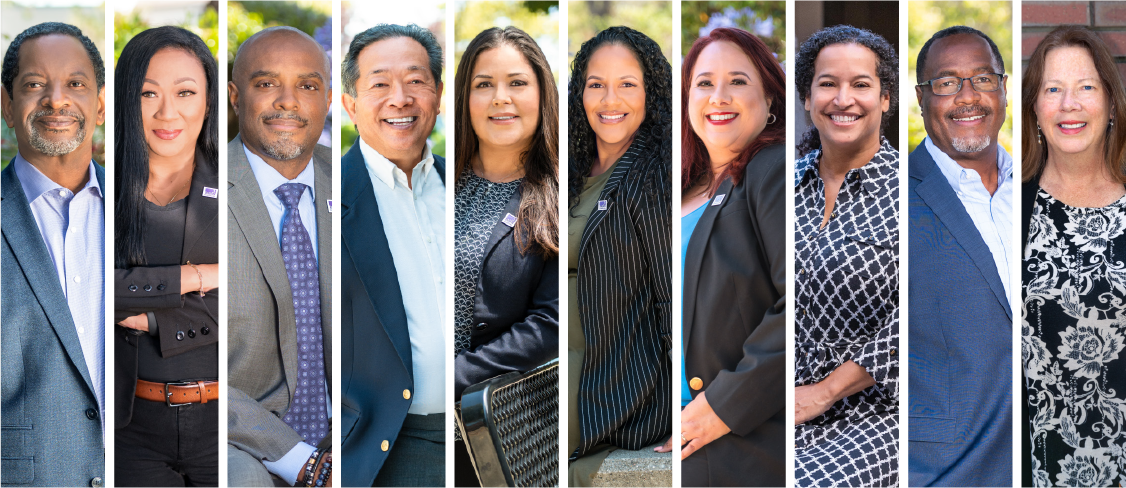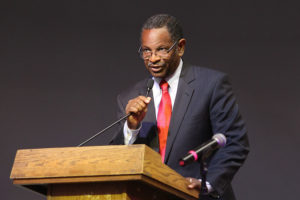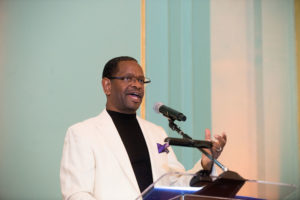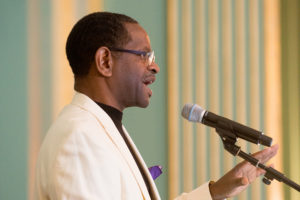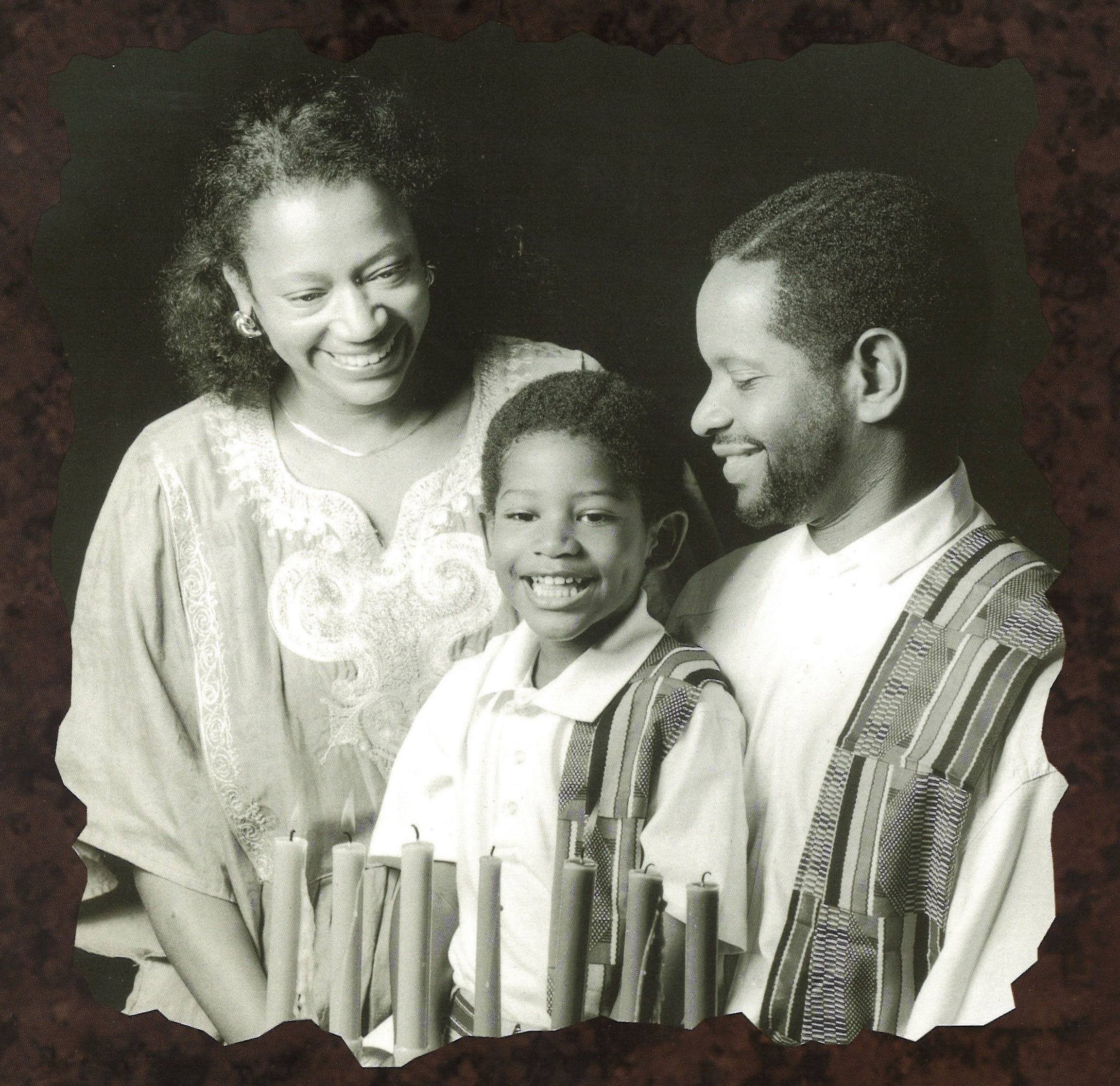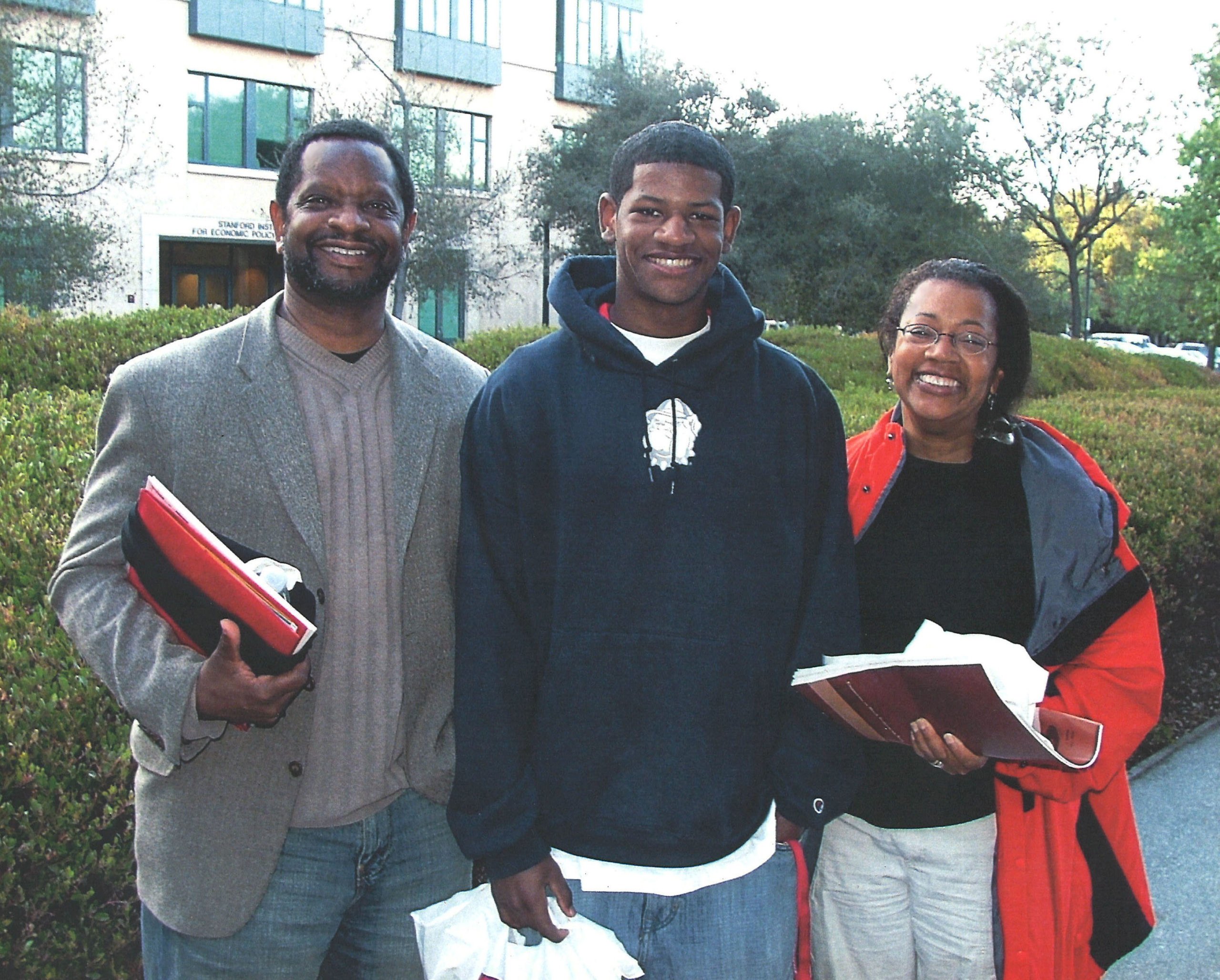Al Gilbert is President and Chief Executive Officer of Felton Institute, a position he has held for the past seven years after having served as its CFO and COO. His tenure includes his initial contract with Felton as a turnaround Consultant assisting the nonprofit navigate through a period of decline.
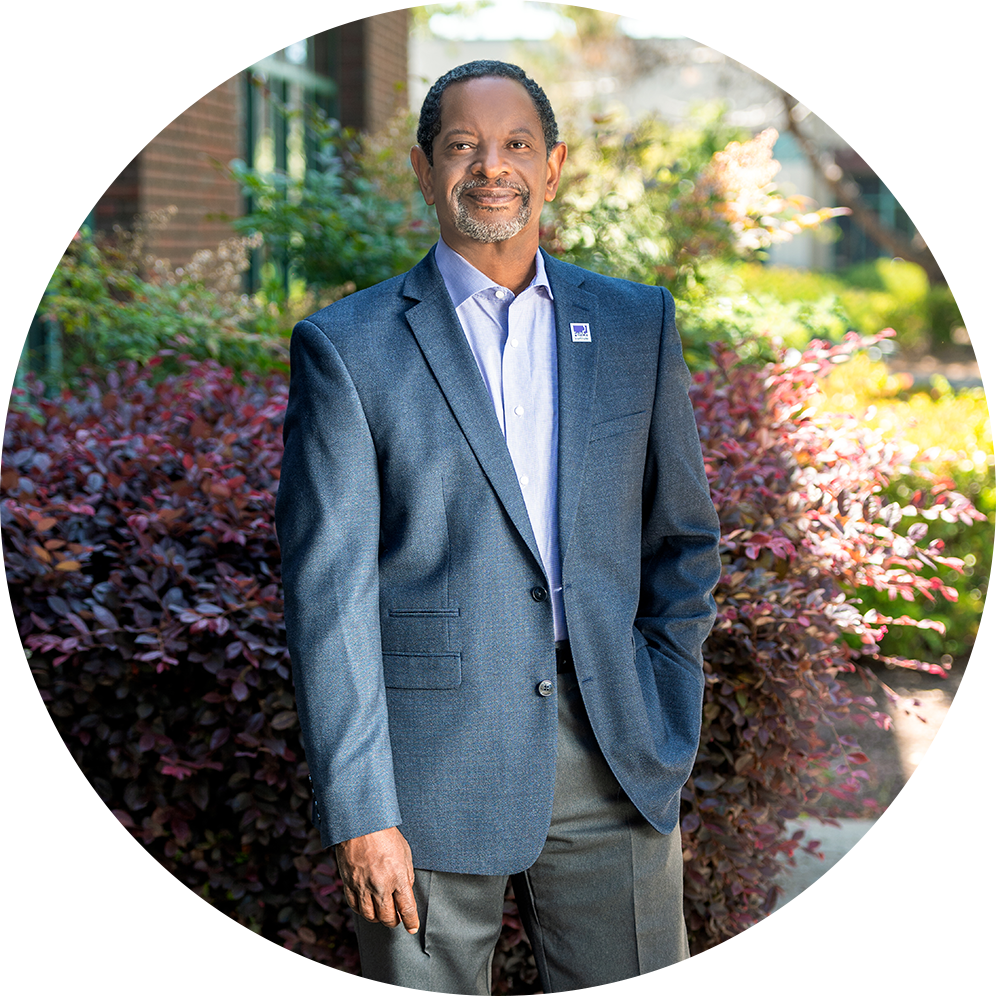
If you’ve spent any amount of time in conversation with Mr. Gilbert, two things are apparent: he is incredibly passionate and energetic about the work Felton does and the communities it serves, and that passion is only exceeded by how deeply he thinks about and cares for the talented staff of this agency. He willing shares, “My interest is in wanting them [Felton’s staff] to thrive and to demonstrate what they’re made of in a world that needs their greatness. I just feel like there’s so much that we can do given the resources of our team members, knowing that the solutions people are looking for are right here. Problem-solving in a rigorous and sustainable manner is what we do.”
Finding a Supportive Work Environment
Cultivating a supportive work environment is personal for him.
“Here at Felton, what I’ve tried to make certain, is that I create the environment that I wanted when I was growing up, and that means the opportunity to go someplace to work, for someone who would recognize your skills, and your talent. When I started my career at Coopers and Lybrand (now PricewaterhouseCoopers) and later at Bank of America, I found great resources for developing a rigorous work ethic. Yet at that time, too frequently, promotion in an organization could be negatively impacted by racial bias. I was motivated to create an environment in which I could excel and be true to my entrepreneurial spirit – so, I started my own consulting firm.”
Promoting Cultural Sensibility and Respect
He has incorporated cultural appreciation and respect into his employment model for Felton. This includes hiring those with lived experience to care for the communities served. He believes staffing that demonstrates a sensibility and respect for cultural and lived experience is an important aspect of Felton’s work. Gilbert noted that in some cases it happens automatically, as when necessity requires the pairing of individuals who are more comfortable speaking in a language other than English with counselors who have some degree of fluidity in the client’s preferred language. It tends to result in frequent pairings of service providers and clients who have a shared Latin or Asian descent. The same is true for the deaf client community. This mirrored pairing is not as frequently true for African Americans, yet it can be just as important to that client. Felton has worked to address this need, refusing to accept excuses like, we just can’t find black talent.
“I understand that in the behavioral health and social services space, it can be harder to find African-American talent, meaning that the pipeline is narrow and yet the need is large. What is not acceptable is being so socially limited or isolated that a manager or leader fails to look for that talent in the communities, associations, and educational institutions likely to produce the desired talent. The other option is working to develop that talent.
“My commitment to diversity is evident in the executive team I’ve built at Felton. I get a chance to demonstrate through their excellence how powerful a concept it can be. And that’s been exciting for the organization because these people are incredible in supporting our organization’s growth and ability to serve.“
The Importance of Peer Leaders
Similarly, Gilbert values engaging peer support in developing Felton’s team. He has embedded this evidenced based practice in Felton’s justice programs.” We’ve expanded our justice service programs dramatically and with intention over the last few years. What I recognized as important and what I followed in assembling the justice program team, is the value of including staff who have been incarcerated or justice impacted.
“I think that when we work with people reentering the community following incarceration, it’s important not only to have someone who can understand their needs but also someone that they can feel comfortable trusting. I know that I’ve never been incarcerated. So, whatever I think incarceration looks like or feels like can only approximate the experience as shared by family members or friends. I might have a good understanding because of them, but it’s a mistake to think that I understand what that experience is really like. So, in my mind, when I consider staff who have been in the prison system and have managed successful transition on the outside, I see someone with the equivalency of a master’s degree in working with someone else facing reentry. They’re the best person to know exactly what’s real and what’s not real. They’re the best person to understand what the trauma is that person must manage. Clearly, they have heightened awareness of what it takes to reestablish yourself on the outside.”
Working to Build a Legacy of Leaders
“I recognize that many things that we’re doing right now are not completely new. I recognize that there are cycles in life. What I work towards is that when I step out of my role in meetings, and eventually, as the CEO and President, that the next generation of leaders will be inspired and that they will pursue creating change reflecting the demands of the community. That would be super cool. That’s what drives me forward. You find extremely talented people. You ask them what their passion is along the social service continuum and then build a business around it. So, I’m a socialpreneur creating and expanding, but with a purpose to do good. The leadership we create here at Felton, reflective of all races and ethnicities, will also be leaders in the external community.”
Al Gilbert’s advice to all is, “Regardless of the situations that they are addressing, regardless of the family, regardless of where they’re born… don’t give up your dreams and don’t limit your dreams. I’m here to push you forward and let you pursue whatever your greatness is. So, stay strong. Stay committed, stay loving. Stay beautiful.”
Life Outside of Felton
Al has lived more than half his life as a northern California resident. He and his wife, high school sweethearts, make their home in Oakland, though they also have lived in both San Francisco and Contra Costa counties. He beamed when he shared, “We’ve been together for 50 years and our expression of love has grown more deeply every year.
“We are blessed with one son. He is an attorney and is now the Director of Baseball Operations for the Colorado Rockies, a new position for him. He had been with the Los Angeles Dodgers before that as Coordinator of Finance and Contracts. We didn’t anticipate that his extracurricular school activity on baseball teams, including as a member of the Oakland Babe Ruth team that won third place honors in the World Series, would lead to a career in sports front office business. We only knew he would have many choices having earned both an undergraduate and master’s degree from Stanford in four years, followed by a Harvard law degree. I feel proud that I have been successful in directing him to define and to follow his dreams.”
- Al Gilbert and family Kwanzaa Celebration
- Al Gilbert’s sons first day at Stanford University for Undergrad
On Black History Month
“I am excited during Black History Month, because people are paying attention and they’ve set aside some time to recognize black achievement. Knowing there have been far too few individuals given an opportunity to excel, it can be challenging to still hear announcements about the first Black in this occupation or the first Black who has achieved a particular honor. Having been the first Black at times in my career, I am aware that the resistance one faces as a result of receiving the first Black title, can be fraught with as many challenges as was probably confronted working toward achieving the position. Still, I always remind myself that challenges build character. Right now, I allow the way I live my life to be an example of who we are and what we can do. And that’s what I’m encouraging the team to do. Regardless of what race or gender they are, just drive forward and demonstrate your power.”
To learn more about career opportunities with Felton Institute, visit our career page, www.felton.org/careers
About Felton Institute: Founded in 1889, Felton Institute responds to human needs by providing cutting edge, evidence-based mental health and social services that transform lives. Felton Institute is a tax-exempt organization registered 501(c)(3) nonprofit under EIN 94-1156530.
Offering more than 50 acclaimed and honored programs that address homelessness, mental health, prenatal, adolescent, adult, and senior needs, Felton Institute provides services in San Francisco, Alameda, San Mateo, Marin, and Monterey counties. Felton’s social services and programs utilize the latest scientific research, combining cultural sensitivity, deep respect for client and staff, and a commitment to social justice.
Felton is the oldest non-sectarian and nonprofit social services provider in the City and County of San Francisco. For over a century, Felton Institute has been at the forefront of social service innovation, pioneering new approaches to meet underserved populations’ emerging needs. At the heart of our work is the belief that individuals and families in crisis must have access to services and resources to help them build on their inherent strengths and develop self-sufficiency. www.felton.org
